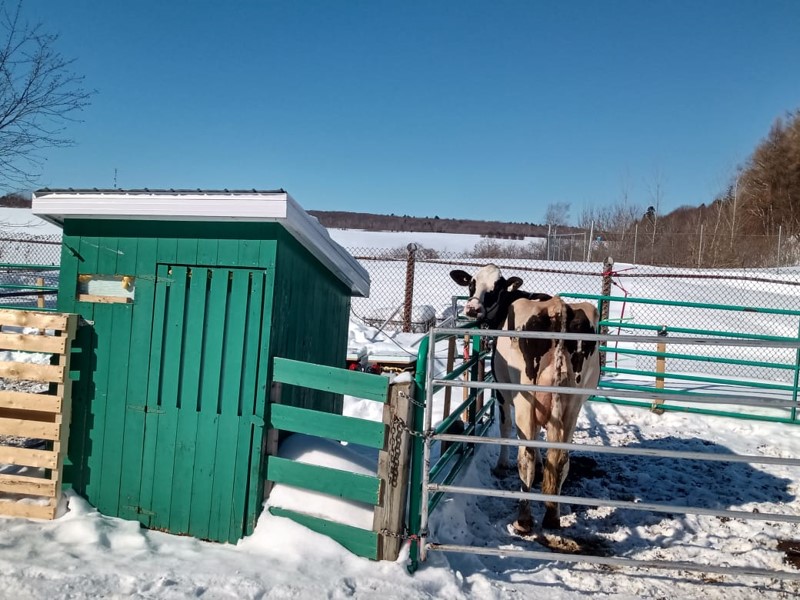Projets de recherche

- Période: 2018-09-01 2023-03-31
Titulaire
Mot(s) Clé(s)
Lait Bien-être Environnement Fumier
Informations complémentaires
Ce projet est financé par Agriculture et Agroalimentaire Canada (Grappe laitière 3). Merci aux partenaires : CRSAD, IRDA, FRQNT, Université de Montréal, Université McGill et Lactanet.
Présentation du projet
This proposal will build a bridge between animal behaviour and welfare and engineering by allowing the development and pilot-testing of redesigned indoor and outdoor housing and management options for tie-stall farms addressing one of the most crucial challenges the Canadian dairy industry faces today: answering concerns from the general public regarding the cows’ restriction of movement. Environmental and economic impacts of these options will also be evaluated in order to provide truly sustainable and realistic options for Canadian dairy farmers.
While restriction of movement is a reality for all domestic animals, freedom of movement is viewed by the general public as one of the most important aspect of the living condition that should be provided to farm animals (Schuppli et al., 2014). Ban of restrictive housing systems for farm animals is effective in some parts of the world (e.g., ban of stalls for pregnant sows in Europe (2013) and New Zealand (2015)). In Canada, Tim Hortons announced last February their engagement to source their eggs entirely from cage-free hens. The dairy industry is also under scrutiny regarding their treatment of animals; in 2014 the infamous Mercy for Animal video depicting animal abuse in one of the Canada’s largest dairy farms led to boycotts by major buyers.
Over 70 % of Canadian dairies use tie-stall housing where most of the cows are restricted to their stall for their entire lactation. Through the proAction® certification initiative, DFC are in the process of assuring minimum standards for animal welfare on Canadian dairy farms and will promote constant improvement of the situation. The Dairy Code of Practices is due to be updated in 2019. In this context, rethinking the provision of exercise to dairy cows kept in tie-stall farms at this time is both judicious and essential; no research has been conducted yet to address this question, especially with the aim of providing relevant and practical options for the dairy farmers.






